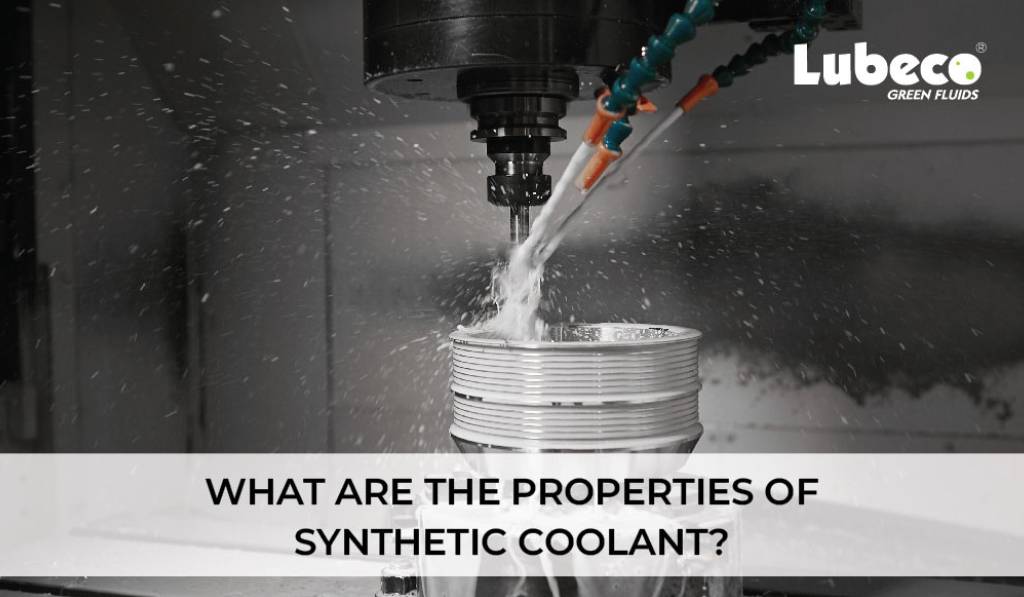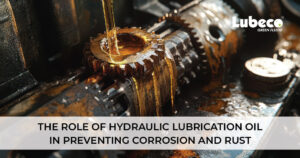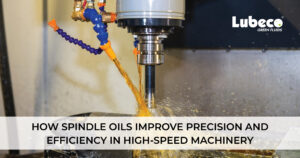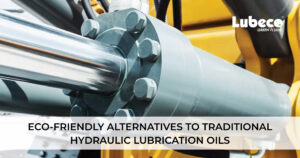Synthetic coolants have become essential in modern engines and machinery, known for their advanced cooling properties, longevity, and overall efficiency in harsh environments.
With technology advancing and engines running hotter than ever, synthetic coolants provide robust protection, help improve fuel efficiency, and contribute to longer engine life.
Let’s explore the key properties of synthetic coolants and why it’s preferred in various applications, from automotive to industrial machinery.
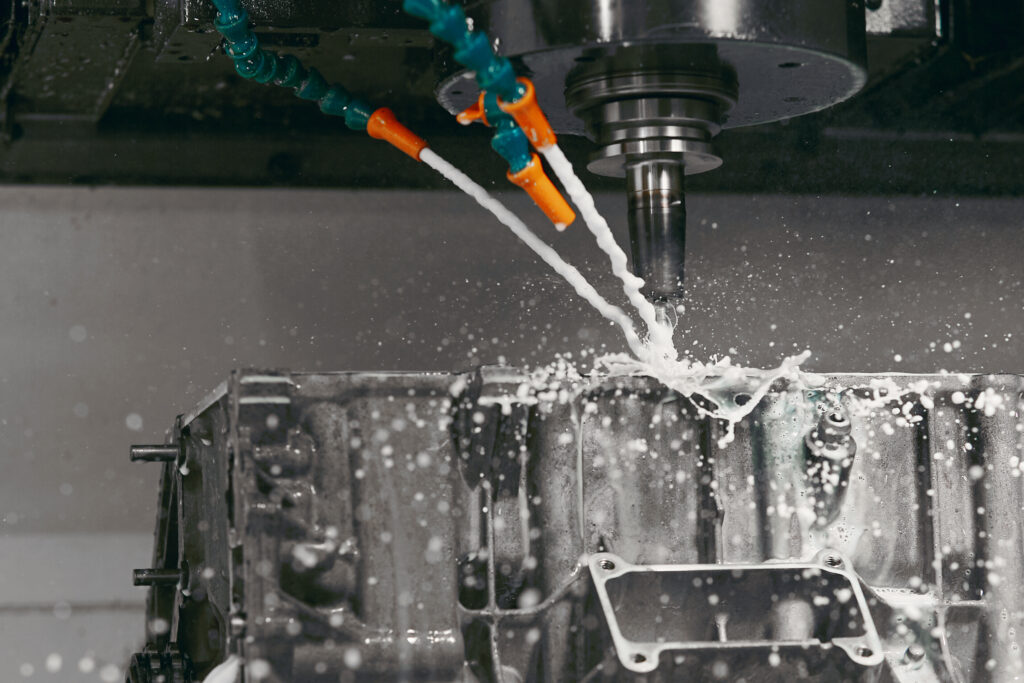
Key properties of synthetic coolants
1. Superior Heat Dissipation
One of the standout properties of synthetic coolants is their high thermal conductivity, meaning they are excellent at transferring heat. Proper heat dissipation is crucial for any engine or industrial machine as it prevents overheating, maintains performance, and prolongs the life of parts.
Synthetic coolants are engineered to:
- Absorb and Release Heat Efficiently: Synthetic coolants are better at drawing heat away from engines or machinery components compared to traditional water-based coolants. This efficient heat transfer allows the engine to maintain optimal operating temperatures.
- Reduce Hot Spots: By evenly distributing heat, synthetic coolants minimize the occurrence of hot spots, areas within the engine where excessive heat could cause severe damage.
In high-performance engines, synthetic coolants help maintain a stable temperature, ensuring consistent power output, efficiency, and reduced wear and tear on engine components.
2. Enhanced Longevity and Stability
Synthetic coolants are formulated to last longer than conventional coolants. The reasons for this extended lifespan include:
- Resistance to Thermal Degradation: Unlike traditional coolants, which may break down under extreme temperatures, synthetic coolants maintain their chemical integrity. This stability ensures that they remain effective over time, providing long-term protection.
- Extended Service Intervals: Due to their durability and resistance to breakdown, synthetic coolants require less frequent replacement. This property is beneficial for heavy-duty engines and industrial applications where maintenance costs and downtime need to be minimized.
Many synthetic coolants can last up to 5 years or 150,000 miles (240,000 kilometers) under normal driving conditions, making them highly cost-effective in the long run.
3. Improved Corrosion and Rust Prevention
One of the primary purposes of coolant is to protect the engine and its components from corrosion, rust, and other forms of degradation. Synthetic coolants are specially designed to combat these issues:
- Protective Additives: Synthetic coolants contain a blend of anti-corrosion additives that form a protective layer on metal surfaces within the engine, such as the radiator, water pump, and other cooling system components.
- Non-Corrosive Properties: Unlike some conventional coolants, synthetic options are non-corrosive to metals commonly found in engines, including aluminum, iron, and steel. This property is essential for maintaining the integrity of engine components and preventing costly repairs.
These coolants often include organic acid technology (OAT) or hybrid organic acid technology (HOAT), which provide extended protection against corrosion and minimize deposits that can lead to system clogging.
4. Low Toxicity and Environmental Safety
Modern synthetic coolants are formulated with lower toxicity levels, making them safer for both people and the environment. Some properties that contribute to their safety include:
- Biodegradability: Many synthetic coolants are designed to break down naturally over time, reducing their environmental impact in case of accidental spills or leaks.
- Non-Hazardous Additives: Unlike older formulations that may contain harmful compounds, synthetic coolants are often free of silicates, borates, and other hazardous chemicals. This makes them safer to handle and dispose of.
This lower toxicity makes synthetic coolants suitable for applications where environmental concerns are a priority, such as in agriculture, marine engines, and heavy-duty vehicles.
5. Excellent Compatibility with Different Materials
One of the unique advantages of synthetic coolants is their compatibility with a wide range of materials used in engine and machinery manufacturing.
This compatibility is essential for maintaining system integrity and avoiding reactions that could damage components. Some key material compatibility features include:
- Rubber and Plastic Seals: Synthetic coolants are less likely to cause swelling or degradation in rubber or plastic components, ensuring the longevity of hoses, gaskets, and seals.
- Metals and Alloys: They are safe for use with aluminum, steel, iron, copper, and other metals commonly found in cooling systems. The coolant’s formulation ensures that no chemical reactions occur with these materials that could result in corrosion or wear.
For industries with complex machinery and diverse materials, this property of synthetic coolants reduces the need for specific material testing and enhances overall system reliability.
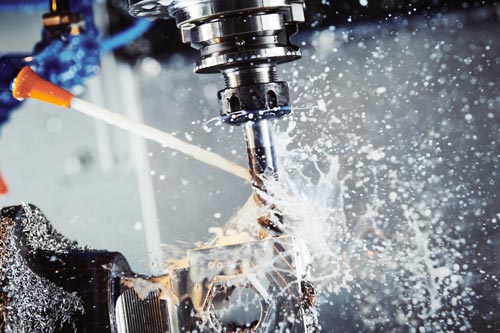
6. Consistent Viscosity Across Temperature Range
Another critical property of synthetic coolant is its consistent viscosity at various temperatures. Unlike water or traditional coolants that may become too thick or too thin under extreme temperatures, synthetic coolants maintain optimal flow characteristics.
This stable viscosity ensures:
- Efficient Flow in Extreme Conditions: Synthetic coolants do not thicken in cold temperatures, which could restrict flow and reduce cooling effectiveness. Conversely, they don’t become overly thin at high temperatures, maintaining adequate lubrication for engine parts.
- Reduced Pump Load: By maintaining a stable viscosity, synthetic coolants reduce the workload on the water pump, which can lead to increased efficiency and longevity of the pump and other related components.
This viscosity stability is especially beneficial in applications where engines or machinery are exposed to extreme weather conditions, such as in high-performance vehicles, off-road machinery, or industrial settings.
7. Anti-Foaming Properties
Foaming in the coolant system can cause inadequate cooling and lead to hot spots. Synthetic coolants are formulated with anti-foaming agents, which help:
- Maintain Consistent Cooling: By reducing foam, synthetic coolants ensure that coolant is in full contact with engine surfaces, maximizing heat transfer and preventing overheating.
- Prevent Cavitation: Cavitation, which is the formation of bubbles that can collapse and damage surfaces, is minimized with synthetic coolants. This prevents damage to pumps and internal components, contributing to longer system life.
Anti-foaming properties are particularly beneficial in high-RPM engines, as the faster circulation of coolant can sometimes lead to foam formation with less advanced coolant formulations.
8. Freezing and Boiling Point Elevation
Synthetic coolants have a higher boiling point and lower freezing point than water-based coolants, making them effective in a broader temperature range. This property is essential for:
- Enhanced Protection in Extreme Climates: Synthetic coolants provide reliable performance in extremely cold conditions, reducing the risk of coolant freezing, which can lead to blockages or damage to the engine. In hot climates, the elevated boiling point prevents overheating.
- Reduced Pressure in Cooling Systems: Due to their stability across temperatures, synthetic coolants can reduce the pressure within the cooling system, which lessens the likelihood of leaks and prolongs the life of components.
For drivers and operators in regions with severe temperature fluctuations, this property ensures reliable engine performance year-round.
9. Anti-Corrosive and Sludge-Free Formula
Synthetic coolants are also designed to prevent sludge formation, a common issue with traditional coolants that can cause blockages and reduce cooling efficiency. Key properties that prevent sludge include:
- Clean Additives: Synthetic coolants use organic and non-depositing additives that do not form sludge, even after prolonged use.
- System Cleanliness: By keeping the cooling system clean, synthetic coolants help maintain optimal flow rates, heat transfer, and overall efficiency.
10. Reduced Maintenance Needs
Finally, synthetic coolants reduce the frequency of coolant changes and overall maintenance. Their stability and anti-corrosive properties mean that:
- Less Frequent Flushes: Synthetic coolants last longer and don’t require frequent flushing, which reduces maintenance costs and downtime.
- Improved Engine Longevity: The reduced maintenance needs contribute to a longer lifespan for engines and cooling system components, making synthetic coolants a cost-effective choice for both personal vehicles and heavy machinery.
Where synthetic coolants are used
Synthetic coolants are widely used across automotive, industrial, and marine applications where enhanced cooling performance and durability are essential.
In the automotive sector, synthetic coolants are popular in high-performance vehicles, heavy-duty trucks, and off-road equipment due to their superior heat dissipation and long-lasting protection.
Industrially, they are vital in machinery, manufacturing equipment, and power generation systems, ensuring efficient temperature control and preventing overheating under constant, heavy use.
Marine engines and agricultural equipment also benefit from synthetic coolants’ ability to withstand extreme temperatures and resist corrosion, making them a reliable choice for diverse and demanding environments.
Summing it up
The properties of synthetic coolant make it a superior choice in terms of heat dissipation, longevity, corrosion resistance, environmental safety, and overall performance. Whether you’re maintaining a high-performance vehicle or operating heavy-duty machinery, synthetic coolant provides enhanced protection and efficiency.
By investing in synthetic coolant, users can enjoy improved engine performance, extended service life, and reduced maintenance costs. For optimal results, consult your vehicle or machinery manufacturer to ensure compatibility with synthetic coolant options.
FAQ’s
1. What is synthetic coolant?
Synthetic coolant is a specially formulated coolant designed to provide superior heat dissipation, corrosion protection, and longevity. They have enhanced properties that make them suitable for high-performance engines, heavy-duty machinery, and extreme temperature conditions.
2. How does synthetic coolant differ from conventional coolant?
Synthetic coolants are more stable under extreme temperatures, offer better anti-corrosion protection, and have a longer lifespan compared to conventional coolants. They resist thermal breakdown and are compatible with a wide range of materials found in modern engines.
3. Why is heat dissipation important in a synthetic coolant?
Efficient heat dissipation helps keep engines at optimal temperatures, preventing overheating and ensuring consistent performance. They are designed to transfer heat more effectively than conventional coolants.
4. Are synthetic coolants environmentally friendly?
Yes, many synthetic coolants are formulated to be low in toxicity, free from hazardous additives like silicates and borates, and biodegradable, making them safer for both users and the environment.

